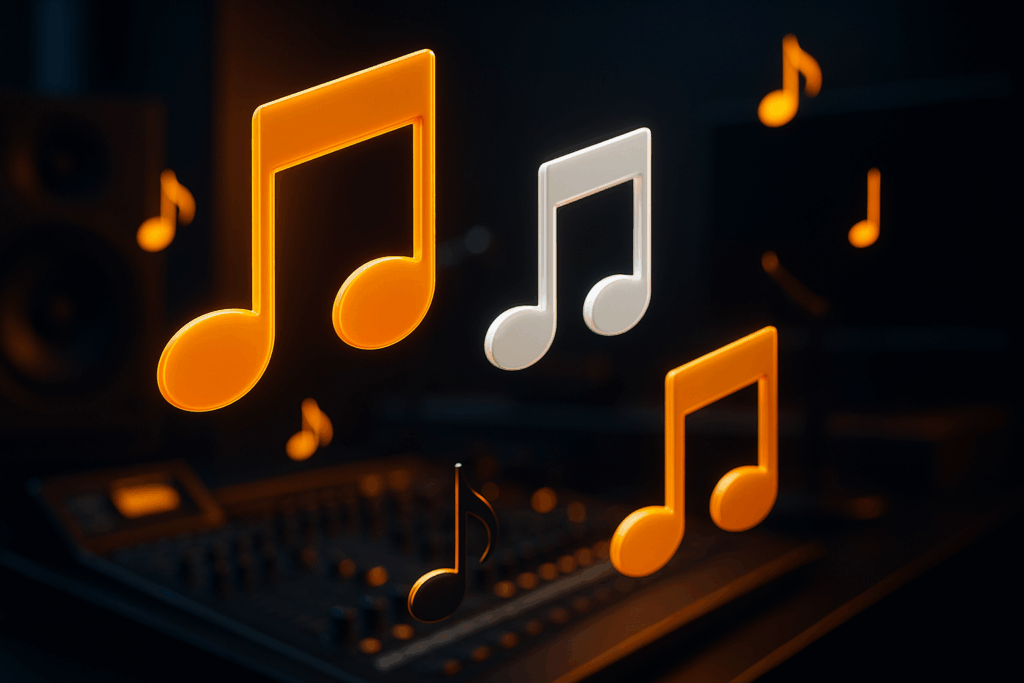Music Licensing Guide for Internet Radio Broadcasters
Playing copyrighted music over internet radio means more than just pressing “play.” You must navigate a web of music rights, licenses, and performing organizations to stay legal and ethical. In this guide, you’ll learn what you need to know — with practical details and up‑to‑date information from trusted sources.

Do You Need a License to Broadcast Music?
If your station plays copyrighted music (i.e. songs by others, not royalty‑free or public domain), then yes — you need licensing to avoid infringing copyright. Operating a station without the proper licenses can expose you to legal risk, significant fines, or even complete shutdown.
However, stations that only broadcast talk shows, interviews, or royalty‑free music often don’t require full music licensing, though you should always confirm for your country and platform.
As a practical note: Zeno already holds agreements with ASCAP, BMI, and SESAC for content streamed via zeno.fm. But if you broadcast on your own website, mobile app, or other external platforms, you’ll need additional licenses in your jurisdiction.
“We do have agreements with ASCAP, BMI, and SESAC … covering content on our zeno.fm website. However, if you plan to broadcast music … we recommend obtaining the necessary music licenses from the relevant organizations in your country.”
Types of Licenses and Rights You Should Understand
Here are the key categories of licensing and rights that come into play:
Blanket / Public Performance Licenses
A blanket license gives you permission to broadcast any track in a music catalog managed by a given rights organization (PRO), eliminating the need to license each song individually. It’s widely considered one of the most efficient and comprehensive ways to legally stream or broadcast music without the complexity of securing rights on a track‑by‑track basis.
But note: having a blanket license with one PRO does not cover you for music administered by others — you may need multiple blanket licenses if you want coverage across catalogs.
Sound Recording / Digital Performance Rights
In the U.S., SoundExchange collects royalties for digital performances of sound recordings (not the composition). These fees apply when users stream recorded tracks (not live performances).
If your streaming reaches into territories outside U.S. law, there may be equivalent local bodies in each country.
Sync / Master Licenses (for audiovisual content)
If you pair music with video — promos, reels, or social media clips — you’ll need synchronization (sync) and master use licenses to legally include both the musical composition and the actual recording. These licenses are essential parts of the broader music‑rights ecosystem, ensuring you’re covered when combining audio with visual content.
Licensing in the U.S. vs. Other Countries
- In the U.S., stations often hold PRO licenses (ASCAP, BMI, SESAC) alongside deals with SoundExchange for digital recording performance royalties.
- Under the Music Modernization Act, the MLC handles blanket mechanical licenses for qualified digital services.
- Costs depend on audience size, station footprint, and catalog.
- For global reach, you might also need to secure licenses in each jurisdiction your stream reaches, or block access where not licensed (geo-blocking).
In many countries, there is a single collective management organization (CMO) that handles licensing; in others, multiple PROs or CMOs exist.
List of worldwide regulatory bodies
| Country | Regulatory body |
|---|---|
| Australia | PPCA |
| Argentina | SADAIC |
| The Bahamas | URCA |
| Bangladesh | BTRC |
| Bolivia | SOBODAYCOM |
| Brazil | ABERT, ABRAMUS, UBC |
| Bulgaria | CRC |
| Canada | SOCAN |
| Chile | SCD |
| Colombia | SAYCO |
| Costa Rica | ACAM |
| Cuba | ACDAM |
| Cyprus | CRTA |
| Dominican Republic | SGACEDOM |
| Ecuador | SAYCE |
| El Salvador | SACIM |
| Finland | TEOSTO, Gramex |
| France | SACEM |
| Germany | GEMA, GVL |
| Greece | GEA |
| Guatemala | AEI |
| Honduras | AACIMH |
| Iceland | STEF |
| India | IPRS |
| Indonesia | ORARI |
| Ireland | PPI, IMRO |
| Italy | SIAE |
| Jamaica | JACAP, JAMMS |
| Kenya | PRISK, KAMP, MCSK |
| Lithuania | LRMD |
| Luxembourg | SACEM Luxembourg |
| Malta | BAM |
| Mexico | SACM |
| The Netherlands | SENA, BumaStemra |
| New Zealand | APRA |
| Nigeria | NBC |
| Peru | APDAYC |
| Poland | ZPAV, ZAIKS, STOART, SAWP |
| Portugal | ANACOM, ERC, SPA, PASSMUSICA |
| Romania | CREDIDAM |
| Russia | VOIS |
| Serbia | SOKOJ |
| Slovenia | AKOS |
| South Africa | CAPASSO, ICASA |
| Spain | SGAE |
| Sweden | STIM |
| Switzerland | SUISA, Audion Music |
| United Kingdom | PPL, PRS |
| United Arab Emirates | TRA |
| Uruguay | AGADU |
| USA | ASCAP, BMI, SESAC, SoundExchange |
| Venezuela | SACVEN |
Consider Royalty-Free and Original Music Options
Not every internet radio broadcaster has the resources or scale to pursue blanket licenses or pay performance royalties. If you’re a small creator, hobbyist, nonprofit, or just starting out, you still have great options for legally playing music on your station — without the complexity or cost of licensing popular commercial tracks.
Royalty-free music libraries offer tracks that are either completely free to use or available under a one-time fee or specific usage license. These tracks are often created specifically for creators like podcasters, video editors, and broadcasters. They come with clear usage rights, meaning you won’t have to worry about ongoing royalties or compliance audits — as long as you follow the terms provided.
Here are some well-known royalty-free and Creative Commons music sources:
- Free Music Archive (FMA)
- Incompetech
- YouTube Audio Library
- Epidemic Sound (subscription-based)
- Artlist (for paid commercial use)
Alternatively, using original music — whether composed by yourself or a collaborator — gives you full control and avoids any licensing barriers. This is an excellent choice for stations focused on niche content, spoken word, or community programming.
Practical Best Practices for Broadcasters
- Maintain detailed logs (song, artist, duration, timestamp). This helps with reporting and audits. In Zeno Tools, you can use the Royalty Statistics feature in the Analytics section to view the aired count and performances of each track in your system.
- Submit required reports to PROs on schedule.
- Whenever possible, incorporate royalty-free or original music, especially in shows with high music usage.
- Consult with a legal expert in your country for local licensing rules.
Final Thoughts
Licensing music properly is essential for any broadcaster who plays copyrighted music. Though Zeno already holds agreements with ASCAP, BMI, and SESAC for streams via zeno.fm, you still need to ensure compliance when broadcasting elsewhere. Always check your local licensing bodies and seek professional guidance if unsure.
October 13, 2025


